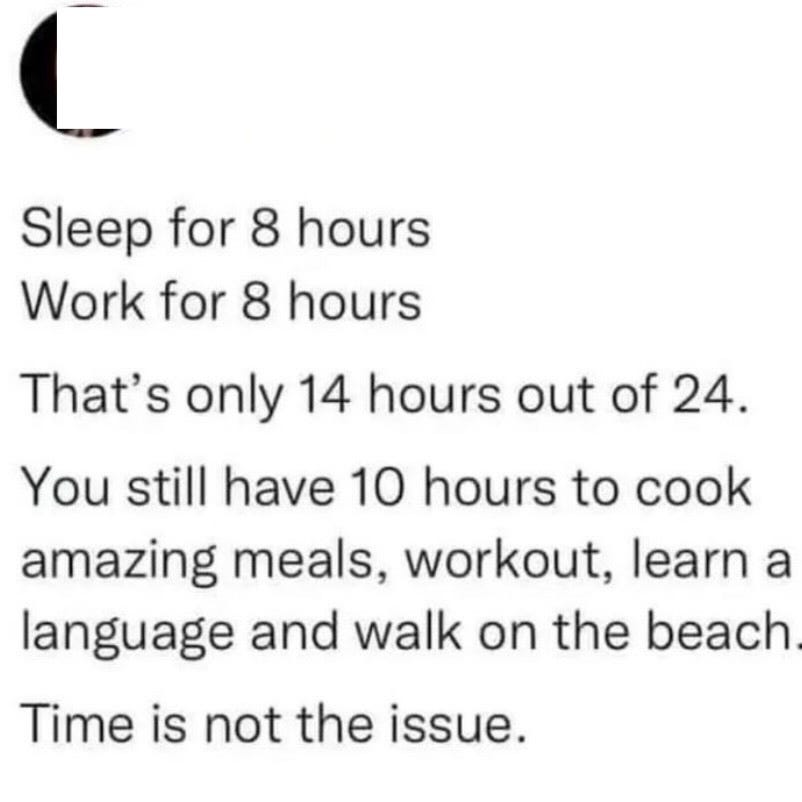Nope, we all don't have the same 24 hours
"Hustle culture ideology says that people are overworking not because they’re economically driven to, but simply because this is the way go-getters get what they want." – Nick Srnicek

I came across the above post from Twitter (I refuse to call it X I don't care), and I immediately stopped in my tracks. “Sleep for 8 hours. Work for 8 hours. That’s only 14 hours out of 24. You still have 10 hours to cook am…
Keep reading with a 7-day free trial
Subscribe to The Nutrition Tea Substack to keep reading this post and get 7 days of free access to the full post archives.




